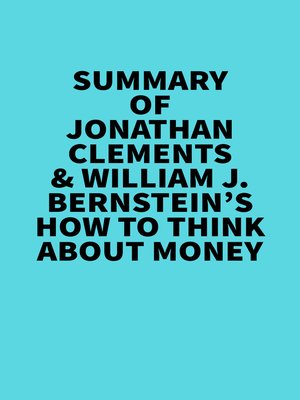Summary of Jonathan Clements & William J. Bernstein's How to Think About Money
ebook
By Everest Media

Sign up to save your library
With an OverDrive account, you can save your favorite libraries for at-a-glance information about availability. Find out more about OverDrive accounts.
Find this title in Libby, the library reading app by OverDrive.



Search for a digital library with this title
Title found at these libraries:
| Loading... |
Please note: This is a companion version & not the original book. Sample Book Insights: #1 Money can buy happiness, but not nearly as much as we imagine. We place too high a value on possessions and not enough on experiences. #2 According to psychology, we adapt quickly to both good and bad developments in our lives. We fail to anticipate how quickly we will adapt, which is why we are so bad at figuring out what will make us happy. #3 The Easterlin Paradox posits that although the average citizen in a wealthy nation like the United States might be very happy with their life, the average citizen in a poor nation is not. #4 Adaptation may also explain why we are generally happier if we have less choice. After all, if we're used to having a lot of choices, it can be difficult to adapt to having none at all.






